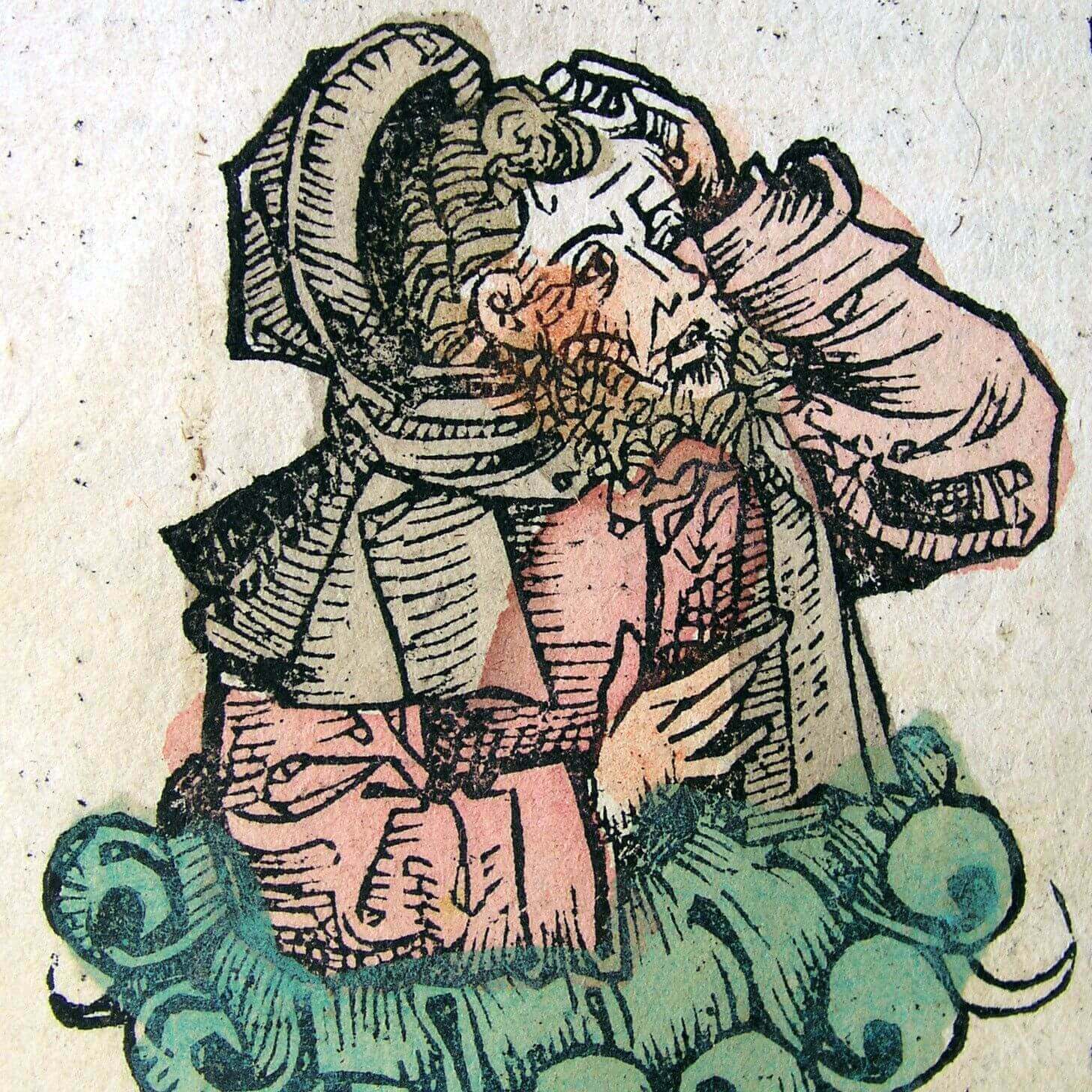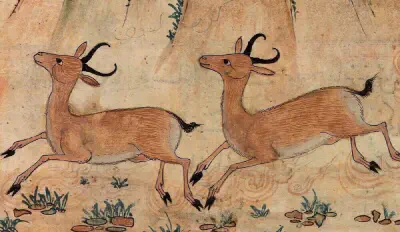Life
Thales of Miletus was born some time around 624 BCE. His birthplace, Miletus, was an important trading port in the Greek world, now on the coast of Turkey. And if Thales is credited with being the first philosopher in Ancient Greece, it is no surprise that he lived in a busy trading town. As strangers met in Miletus, they no doubt argued about their different world views as they looked for common ground to communicate and trade. So Miletus was a natural place for the beginnings of philosophy, which attempts to think about the world more universally.
No writings by Thales remain, if he ever wrote at all. And we don’t know much about his life. But in the stories that later writers tell about him, he appears as a man who paid close attention to the world. He was said to have predicted eclipses, to have discovered electricity by rubbing a piece of amber, and to have been fascinated by magnets. His experiments with electricity and with magnets led him to conclude that all things have a soul, even inanimate things.
“Thales gave inanimate things too a share in soul, taking his evidence from the magnetic stone and from amber.” — Diogenes Laertius
Worldly and unworldly philosophers
In many stories about Thales, he seems very worldly and practical. In one story, told by Aristotle, one year Thales predicted a bumper olive harvest, based on his meteorological observations. Realising that the conditions were going to be perfect for olives that year, he reserved the use of all the olive presses in Miletus in advance, and made a fortune on renting the presses back out when the harvest came in. According to Aristotle, this was no get-rich-quick scheme. Instead, Thales simply wanted to show that philosophy had a practical use.
In other stories, Thales seems less worldly. One tale — popularised by Aesop in his Fables — says that he was so busy staring up at the heavens, he fell down a well. True or not, it shows that jokes about unworldly philosophers are as old as philosophy itself.
Traditional accounts say that Thales died around the age of 70, of heat-stroke whilst watching the Olympic Games.
Philosophy
Thales is significant because he broke with mythological or theological explanations of why the world is the way it is, resorting instead to naturalistic explanations. In doing so, he made a split between how things appear to be (‘appearances’), and how things actually are (‘reality’), arguing that to understand the complexity of the world, we need to look to simpler, more basic underlying principles beneath. This division between appearances and reality became central to the traditions that stemmed from Greek philosophy. For example, when Socrates asked about ethics, he wanted to drill down to find the deeper principles that lurked beneath the everyday phenomena of ethics. He wanted to find out not just about this or that act of justice or injustice, but what justice was in itself.
From myth to naturalism
In the perspective of Greek mythology, the world is subject to the lawless whims of the gods. The desires of the gods are changeable, capricious and impossible to anticipate. In a world ruled by the gods, it is anybody’s guess what is going to happen next. There is no way of predicting an olive harvest: these things just happen. But if the world is underpinned by natural laws and principles, then it becomes possible to understand the world more deeply by understanding these laws and principles.
Appearance and reality
The idea that the complexity of the world is underpinned by simpler reality leaves us with a problem: what is this underlying essence or reality? This was a topic for considerable debate among ancient Greek philosophers. Thales, who was the first to ask this question, concluded that the underlying reality was water. After all, water is changeable. Life depends on it. And as Thales lived by the shores of the Mediterranean, water was pretty much everywhere.
For there must be some nature, whether one or more than one, from which other things come to be, while this nature is preserved. [The philosophers] do not all agree, however, on the number and kind of such a starting-oint. Thales, the one who started this sort of philosophy, says it is water (because of this, he also declared that the earth rests on water), perhaps reaching this supposition from seeing that the nourishment for all things is moist… — Aristotle, Metaphysics
Thales was wrong, of course. But this method of understanding the world has persisted down to the present day. And contemporary scientists, just like Thales, continue to work by seeking out the simpler principles behind complex things.
Further Reading
Books
One of the best collections of sources for early Greek philosophy is The Presocratic Philosophers, by Jonathan Barnes (Routledge 1982).
Catherine Osborne’s Presocratic Philosophy: A Very Short Introduction (Oxford University Press 2004) is a thought-provoking but easy-to-read exploration of Thales and other early Greek thinkers.
Online Resources
Try the always reliable Ancient History Encyclopedia for more on Thales: https://www.ancient.eu/Thales_of_Miletus/. This page also links to a great ‘Thales in Five Minutes’ video.
Image: German woodcut of Thales from the Nuremberg Chronicle, 1493. Courtesy of Wikimedia Commons.



